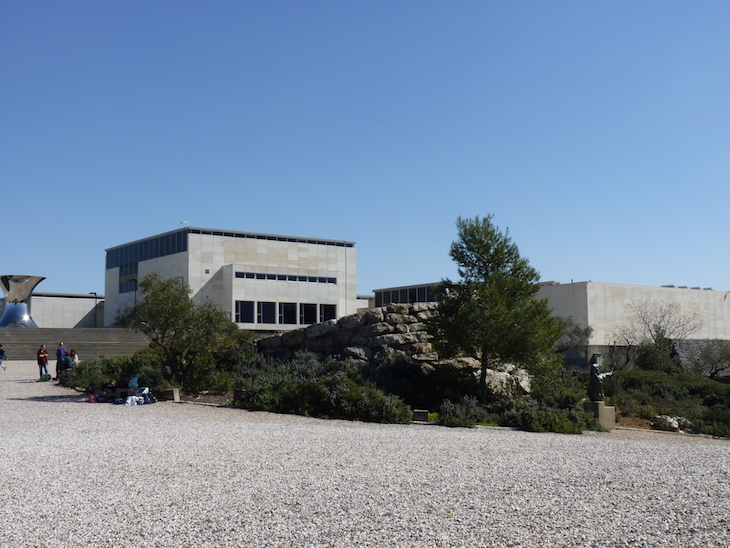In January, the Israel Museum announced that it had come to the end of its nine-month, global search for a new director with the appointment of Eran Neuman. There were press releases, profiles, and fanfare – Neuman, a 49-year old Israeli and architectural historian, was unanimously chosen by the museum’s board of directors to replace long-time director James Snyder.
Praised for his intellectual curiosity and academic rigour, as well as his foundational ability to lead Israel’s largest cultural institution, Neuman moved from his position as head of Tel Aviv University’s Architecture School in mid-February, and began settling into his new role in Jerusalem.
And then abruptly, and surprisingly, Neuman left.
Eran Neuman. Photo: Ellie Posner; courtesy the Israel Museum
The museum issued a short statement on 5 April, less than two months into Neuman’s new role, announcing that he had decided to remain head of the Architecture School at Tel Aviv University. He has also retained his position as head of the architectural research centre and archive at the Tel Aviv Museum of Art. Neither role was filled in his two-month absence.
The museum’s board of directors reopened their directorial search following the announcement, and in the meantime, has appointed Ayelet Shiloh-Tamir, the museum’s deputy director, as acting director. Little reason was given for the sudden about-face, and the Museum simply stated that ‘The decision was taken following differing perceptions regarding his role and terms of employment.’
In the days following Neuman’s departure, local press and Israeli cultural circles speculated about the reasoning behind Neuman’s quick exit. Israeli newspaper Haaretz reported that Neuman had not yet signed an official contract with the museum, effectively making his first weeks a sort of trial period. It also suggested, through various sources from within the museum structure, that the real reason behind Neuman’s decision to remain in Tel Aviv is the overwhelming and continuing influence of Snyder, who served as director for 20 years.
Two decades ago, Snyder’s appointment was somewhat unconventional. A Jewish American from Pennsylvania, he had never visited Israel and did not speak Hebrew before he became the museum’s director in 1996. But he brought with him 22 years of experience from New York’s Museum of Modern Art, where he oversaw its west wing expansion in 1984, and as a deputy director, managed the international borrowing and lending structure. When he moved to the Israel Museum, his international experience paid off – quite literally. He became a fundraising machine, and spearheaded the $100-million expansion of the campus, which opened in 2010. Under Snyder, the museum’s attendance per year doubled, from 400,00 to 800,000, by appealing to tourists and visitors from abroad with an accessible, if not always critically acclaimed programme.
It is not surprising then, that Snyder’s legacy, modernising the museum for the 21st century, continues to loom large. After he stepped down, he was appointed international director of the museum – a position created specifically for him, described primarily as a fundraising role aimed at building international networks between donor organisations and cultural institutions.
Though Neuman was tipped to organise a personal fundraising structure in his new role, the Israel Museum relies on Snyder’s close ties to international donors, not least the American Friends of the Israel Museum (AFIM) which, throughout his tenure, donated over 2.8 billion NIS ($730 million) to the institution. (Incidentally, as he stepped down in January, independent Israeli news blog Ha-Makom reported that alongside his institutional salary, Snyder had also maintained a separate salary paid by the AFIM from 2010–15, totalling around $8.3 million. The disclosure caused quite a stir, but the Museum has since issued a statement that the Supervisor of Wages permitted this to occur, citing the separate operating nature of the two bodies.)
Neither Neuman nor Snyder have commented on the series of recent events that has left the Israel Museum without a permanent director. But the search for a replacement continues as Israel’s most respected cultural institution tries to strike a balance between legacy loyalty and progressive programming.
